Ari Pokka: «A school principal is not an orchestra conductor, but someone who softly reminds what melody everyone is playing»
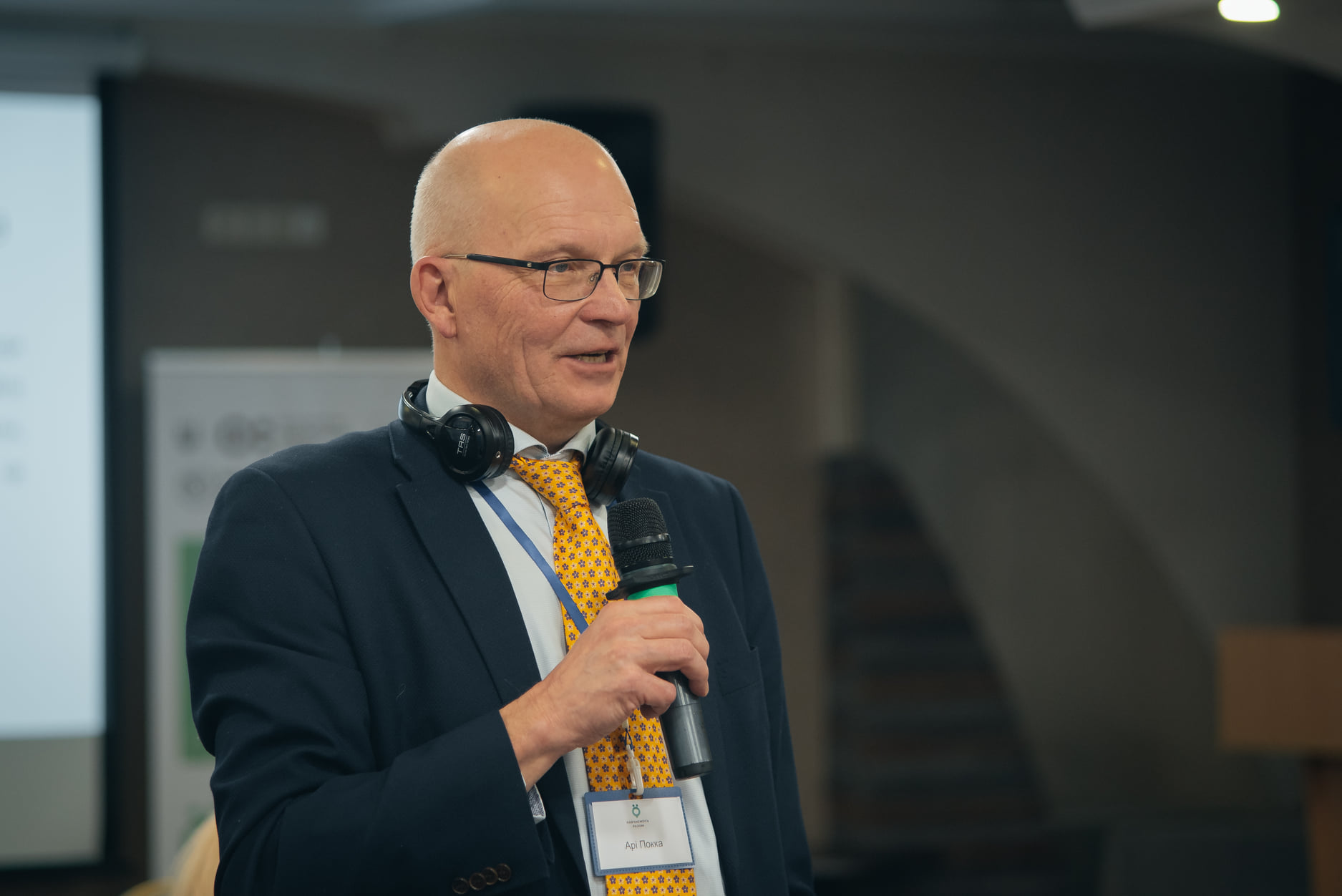
02.02.2023
You are permanently busy and cannot find time to plan your day, because there is always something distracting you. At the same time, your job is interesting and you are capable of contributing to improving the quality of education. This situation is quite familiar to a school principal in Ukraine. However, as told by Ari Pokka, the international expert and consultant of the Learning Together project, the principal of a high school in Finland and a well-known expert in educational institution management, it is also true for a Finnish school principal.
In this article we will discuss with Ari Pokka and the Learning Together Project Manager Jarkko Lampiselkä:
- quality of education in Finland;
- communication with parents and fight against consumer approach to education;
- nuances of the work of a school principal in this country, his competencies and responsibilities;
- school strategy and its implementation.
Quality education – what is it like?
– What do they mean in Finland when they speak about the quality of education?
Ari Pokka: The quality of education is a hot topic in Finland. In high school, we even speak about education quality standards. First of all, this applies to learning outcomes. But it seems to me that the process itself is no less important – what happens between the teacher and the student. I am convinced that it is the process of acquiring knowledge and the relationships between educational actors that are the most important aspects that shape the quality of education in the country. To make all processes in the school efficient and contributing to learning – this is the key objective of the educational process.
To achieve this goal, every school in Finland has a clear development plan. In Ukrainian schools, I have often noticed that they start doing something when they can no longer do nothing. Everything is different for us – we develop a plan and clearly implement it. Such a school policy let us approach our ideal of education quality.
In addition, Finnish schools are extremely efficient. When we are in school, we are focused on our work. This applies to both teachers and students. For example, Finnish schoolchildren have almost no homework, because teachers are convinced that children should study at school. I think this is also an indicator of education quality.
Also, local education management offices are always ready for a constructive dialogue. That is, if there is a question that we cannot solve at the school level, we can be sure that we will get understanding and help.
Jarkko Lampiselkä: The quality of the educational process is a concept that contains many components. It includes teaching, student achievements, communication with parents and educational environment for children. Many activities take place in Finland to improve the education quality. Some people may not like these changes, but if we look at these processes from a long-term perspective, we will see how important they are for the education sector and improvement of the education quality in general.
For example, we believe that child’s learning outcomes are important, but we also understand that the conditions in an educational institution are no less important for efficient learning. We monitor each child’s progress during a school year. And even if his or her result is lower than that of an average school student or the results of classmates, this does not mean that the student does not study well. We look at what progress this particular child has made in his individual educational trajectory in relation to his own initial learning conditions.
We pay a lot of attention to ensuring that the school is as comfortable as possible for students, teachers, parents and the community. Students and their families should be sure that they receive equally high educational conditions in both metropolitan and rural schools. The national level of education quality also depends on this.
– In Ukraine, there are a lot of discussions about cooperation between schools and parents. How is this cooperation organized in Finnish schools?
AP: The policy of school communication with parents is constantly changing. For example, in previous years a call to school did not mean anything good to parents, because everyone knew that if they were called, then there was trouble. But now we talk to our parents about everyday school life and consider it important. Sometimes teachers and parents say that such communication is too much, but we believe that it is better for parents to know more rather than nothing.
In primary school, parents’ help is especially precious. For instance, we often have a parent council that takes part in planning and conducting various activities for children during a school year.
I work in a high school, and here communication with parents is a little bit different. For example, we ask parents to come to school and tell their children about their occupation and work, even about their life path – how and where they studied and what they were able to achieve thanks to this. It is interesting to see how former students now stand in front of the whole class and tell how mischievous they were at school, and now they are successful and serious adults.
In fact, such things allow parents not only to be aware of what is happening at school with their son or daughter, but also to feel themselves an important part of their school life. We find this valuable for learning. On the other hand, when they feel themselves part of this school community, communication takes place on a completely different level of interest toward learning.
But, on the other hand, there are many parents who consider school and education a kind of public service, of which they are clients, and they behave accordingly. They believe that the school should provide better opportunities and conditions not to all educational process actors, but specifically to their child. They start demanding special services exclusively for their child. In such cases, I try to explain: if I now give them everything they demand, what will I tell those parents that they will come to my office for such things?
YL: Parents often see their own memories in their children’s educational institutions and do not want to notice that the educational system has changed over the years and their children study in new conditions. That is why it is important to involve them in the school life, show the conditions in which current children study, and the changes that have been taking place very quickly in the educational system in recent years. And then they begin to realize that teaching skills and competencies is a completely different work and approach than they once knew.
AP: When parents come to my school for the first time, I tell them: your children are here not for you, but for themselves. Yes, you support the children, but you don’t go to school, they do. So look at everything from their point of view. And second, don’t believe everything your child says about school, and we will not believe everything they say about you.
It is important that my parents and I work as a team. We are always open to communication on any issues, we introduce them to the curriculum and activity plan, and do everything possible to ensure that they do not have any questions about what their child will do at school and why.
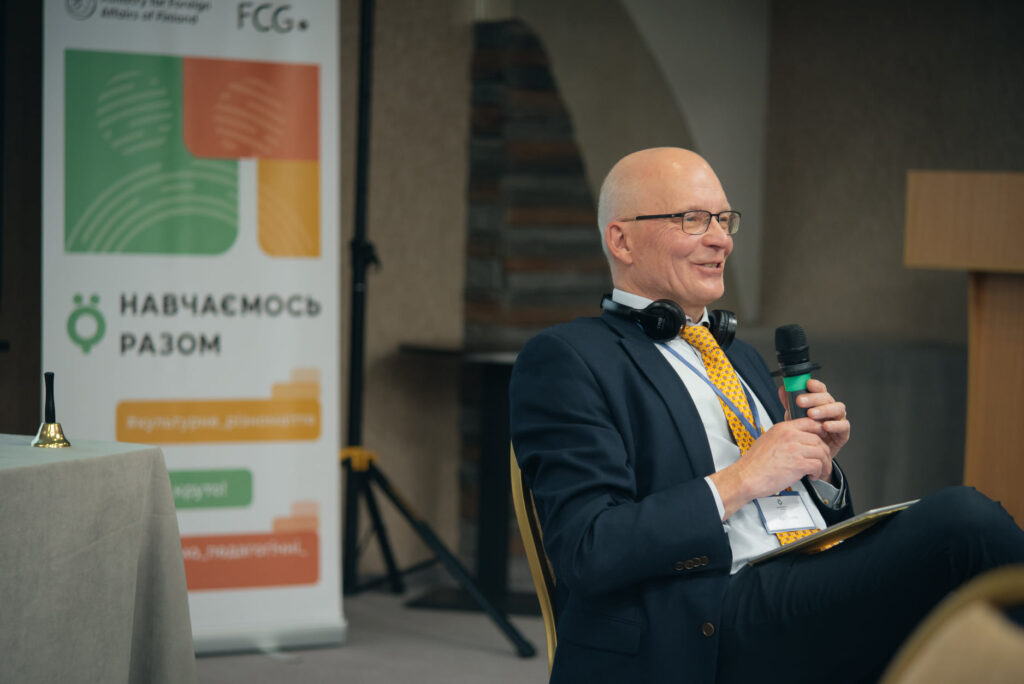
– Is it necessary to fight against a so-called «consumer» approach of parents to educational service delivery and how?
AP: Such a consumer approach to an educational institution is not only a problem of the educational environment, it is a more global issue that affects all spheres of life. Now people are more interested in improving their standard of living than in social problems. I think we should show the value of education to everyone. This is the cornerstone.
When we communicate with parents, we must remember that we do not talk to them from a personal position, but as representatives of the educational institution, that is, officials. And based on our position and behavior, parents form an opinion about the educational institution and the education system as a whole.
All our steps should be transparent, and we do not have the right to single out anyone or allow ourselves to have a personal attitude towards someone with whom we communicate as representatives of the school.
School principal in Finland: how to become one and what responsibilities he has
– How to become a school principal in Finland? Do you need special education?
AP: To become a school principal, you need to have a teacher education. And then there are several options to become qualified as head of an educational institution. Relevant programs are available at the National Education Agency and the University. Studies take place during about a year. After completing this qualification program, you can become a principal. There are no requirements that you should first work as a teacher for several years.
However, based on my own experience, I can say that it is difficult to start working as a principal when you have never worked as a teacher and have no practical experience in how learning is organized.
By the way, students of pedagogical faculties and even teachers-practitioners are often trained to receive a qualification of a school principal, even if they do not plan to hold such a position. This is useful for professional development – to understand the nuances of managing an educational institution and building the educational process, to be able to look at the whole picture from a different angle.
On the other hand, not many teachers aspire to become a school principal. In Finland, for example, when a vacancy for a school principal position is opened, 1 to 5 candidates apply. For comparison, for a vacancy of a teacher 100-150 candidates apply.
This situation is primarily due to a significant range of duties and a high responsibility at this position. But the difference in salaries, when compared with a teacher, is not so significant. Although, on the other hand, for example, in the UK, the work of a school principal is paid very well, but even there this occupation is not popular.
Principalship is a very stressful job, and not many candidates are ready for it. Moreover, the society carefully monitors the activities of a school principal. And if you don’t meet the needs and demands of the community, you can see how your name will be discussed, if not criticized, in the media.
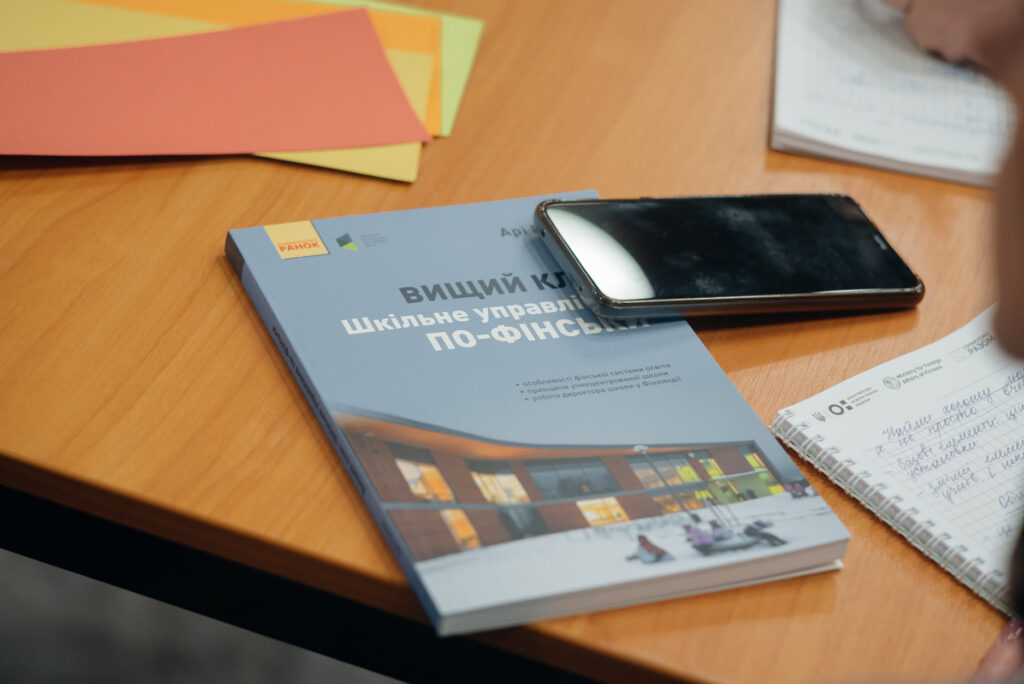
– Does the school principal have a probation period before signing the contract? And how long can you hold the position of a principal in one school?
AP: Usually the school principal works half a year, after which he signs a permanent contract. During this period, they can determine whether the working conditions meet their expectations, and the founder of the institution, accordingly, can draw a conclusion about their qualifications as a manager.
Choosing a principal is by no means a political decision: to get a position, you must be the best candidate in terms of your professional qualifications. Today, the principal is not an elected position. This means that the manager is not elected for 5-7 years, but can hold the position for as long as he wants, if he does not do anything stupid in his work.
In Finland, in general principals and teachers tend to work in the same school for many years. And I find it an extremely useful practice. In Ukraine, the maximum cadence of a school principal is six years twice – it is not enough. What is 6 years? In Finland, this is only the term of a primary school, that is, during this period, the principal will be able to «grow» only one class (parallel) and bring them not even to the end of secondary school, but only to the 7th grade. I therefore believe that the minimum should be 9 years. And only after that, the principal can say that he has gained experience, understands all the processes taking place in his school, relationships and communications.
Let’s look at this from the other side. If in 6 years the principal ends his cadence and returns to his own school as an ordinary teacher, how will the team perceive him as a colleague, and not a leader? Will he be able to be an efficient manager as a principal when he thinks about how his current decisions will affect his future communications with colleagues, when he is just a teacher?
– What are the main duties of a school principal?
AP: I believe that the key task of a principal is to build a teaching team. After all, it is the principal who is engaged in the selection of personnel. He is also responsible for the budget and money. The municipality allocates funding, and the principal must distribute it so that the school does not lack something throughout the school year. And if we don’t use it, we may get less next year.
Solving administrative issues, organizing teachers’ work and recreation, and monitoring student attendance take up a lot of time. The principal should also be aware of everything that happens at the school, make decisions on punishing students’ misdemeanors and monitor the work of teachers and its quality.
Every day, the school principal also solves a lot of small tasks – someone has lost his key, someone has lost his bag, someone has lost his teacher. The main thing behind these trinkets is not to lose the overall picture and the goals that you set for yourself. On the other hand, you should be very deeply absorbed in the issues of your school and always keep your finger on the pulse.
Therefore, it is difficult to find the principal of a Finnish school in the office, but you can always see him somewhere in the school where he decides or observes something. He needs to know everything that happens at school.
The principal is also responsible for the safety of the learning environment. This issue is given extreme attention in Finnish schools. The manager must solve the problem before it appears. Moreover, both parents and society are very vigilant about this. The school must be safe for work and studies. This applies to both the building and the school yard.
YL: Let’s compare it with sports. You can be, for example, the best runner, cyclist or swimmer. But when you participate in triathlon competitions, you should be able to do all this better than others. So is the school principal – he should be able to do everything.
AP: But to be a school principal is very interesting. No day is like the previous one. You have a work plan for today, and at the end of the day you may realize that you haven’t made anything of it, even though you worked hard.
And principalship is a constant communication. With students, teachers and parents. This is a kind of social load, because everyone comes to you so that you listen carefully, help find a way out of the situation, develop a trajectory or plan additional development together. The principal’s attitude to such communication is extremely important, because it is further transmitted, for example, by the teacher in the classroom. If I am attentive to the needs of the teacher, then he will also listen to the students when he comes to his class. If I don’t listen to the teacher, then he can also transmit inattention to the students, and the latter will not respect either the teacher or the subject that he teaches.
Principalship is leadership, and social interaction is its cornerstone. We need to be interested in each other if we want to make the educational process really high-quality and efficient.
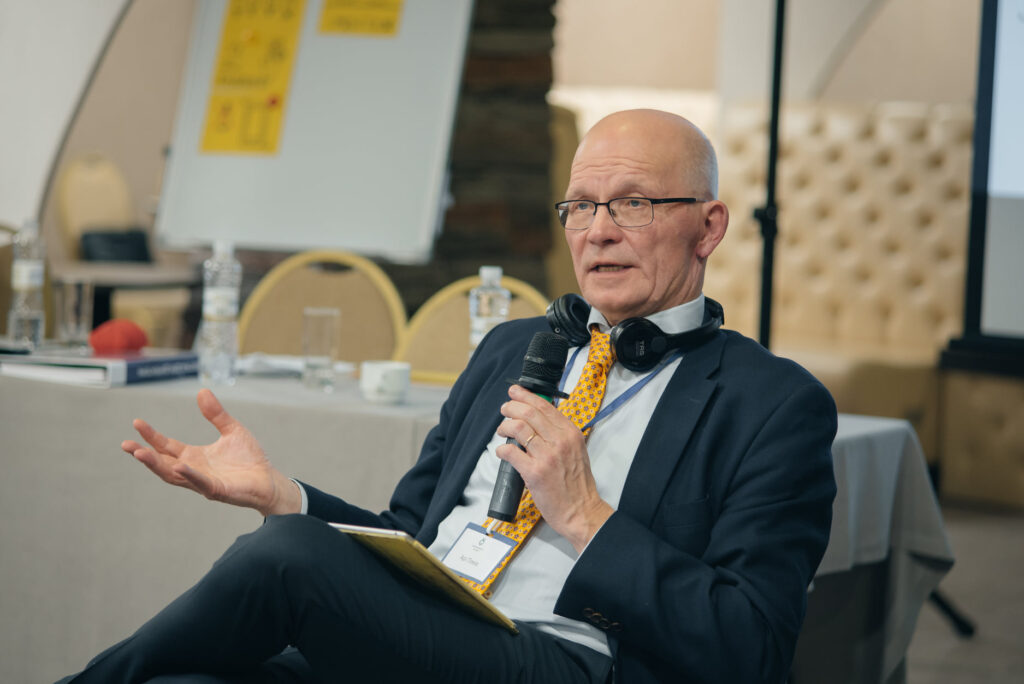
– Does the school principal teach lessons?
AP: Whether the principal will also be a teacher in his school depends primarily on its size. If the school has 200-300 students, the principal can find several hours a week to teach, but if there are more children, then he will not have time physically to teach. As a rule, this is prescribed in the contract.
Of course, it is very useful for the principal to have a teaching practice in order to know what is happening in the classroom from the inside. However, it is not necessary, you do not have to teach to be aware of all the nuances.
How to create a school team
– In recent years, school administrations in Ukraine have started writing school development strategies (sometimes by the entire school community). Do Finnish schools have such a document? Who develops it and how is it implemented?
AP: We have a national curriculum as well as municipal programs for the development of the educational system. All these programs should be interpreted and implemented in school curricula. But we also have considerable autonomy, that is, we develop our own development strategy.
In those schools where the principal has an effective team and supports the initiative of his teachers, such strategies are developed jointly. Moreover, when a goal is set collectively, everyone works to achieve it, that is, the implementation of the strategy is more efficient, since the participants are involved in the process from the very beginning. When compliance with the plan is a principal’s order, and no one understands why to implement it, the implementation is much more difficult.
From this point of view, leading schools often involve parents and students in developing strategies. It is important for them to work together with teachers and be heard.
But, in addition to the strategy, it is also important to have an action plan to achieve this goal. Teachers are more efficient when they understand the procedure: what is done in September, what is planned for November, etc. Yes, we can go beyond this plan, but rather as an exception, devoting most of our time to its gradual implementation.
We usually update such plan annually, and based on the annual plan, we rebuild short-term and individual development plans.
– In Finland, external inspections of schools and teachers have been minimized. However, the school principal should clearly understand that the quality of education in the school is high, and monitor this. How does he do this?
AP: The principal influences the development of the education plan, the formation of the learning environment and the educational process as a whole. When a principal chooses a teacher for his team, he thinks about what expertise the school needs. What knowledge and skills the school lacks, and what changes need to be made.
We always discuss teachers’ professional needs (both in terms of implementing the educational process and improving their professional skills) in an individual and group format. This usually happens at least twice a year.
We conduct a survey among students and their parents regarding their vision of the educational process, collecting suggestions and comments. Now in Finland, we try to introduce a system for assessing the quality of education, where parents and children can evaluate not only individual teachers, but also the organization of learning in general. After all, we understand that the assessment of a particular teacher can be too personalized and depend on many individual factors. And often dissatisfaction with the teacher can be resolved through negotiations.
On the other hand, we want to build an educational system where everyone gets maximum opportunities to be efficient and focused on learning. And the problem is not always in the relationship of the student with a particular teacher, the range of issues is much wider.
YL: Of course, the school principal has a huge number of duties and responsibilities. But the educational system in Finland is built in such a way that it also has great support, first of all, from the teachers themselves. As a rule, a school has several teacher teams that help the principal solve particular issues, such as budgeting or monitoring the quality of the educational process.
Yes, the principal is the main figure in the process, like an orchestra conductor, but teachers also have an area of responsibility. And this approach allows them to be more involved in the educational process, interested in the result and feel like an important part of the team.
– How to attract teachers to active and efficient work?
AP: First of all, the principal should ask himself the following questions:
- How does he see his school, his team and his students?
- How would they like to build the educational process and what is needed for this?
- What rules will the school have and what management principles does it want to adhere to?
And even then, when you see the whole picture, you should talk to teachers. And not just impose your opinion, but also listen. What does your team need to feel happy in their professional life? And there are also opinions and wishes of students and their parents.
Here it is extremely important that the principal himself does not end up being aloof from this process. When other participants decide everything and organize it without the participation of the manager at all.
YL: We need a balance between control and freedom. If your school is too controlled and centralized, it kills creativity and initiative, any involvement and interest. On the other hand, if there is no control, the process turns into chaos.
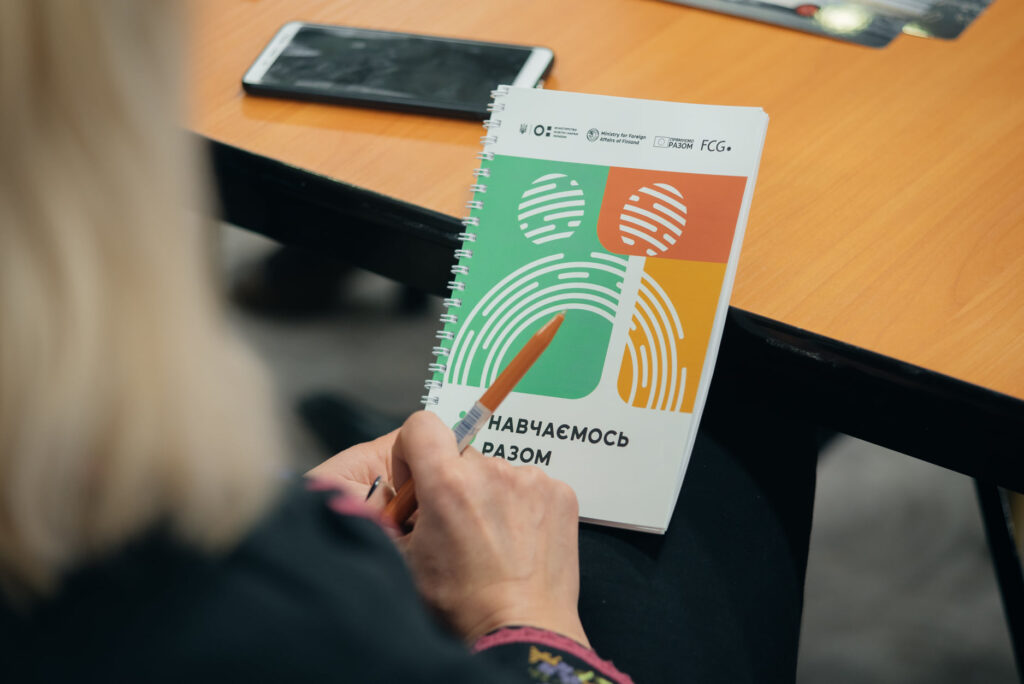
The principal decides how much autonomy the teacher has. But when a teacher feels supported and recognized for their qualifications and capabilities, there is trust in the manager, which means that work efficiency increases. The principal transmits to teachers: if you have patience and desire, everything is feasible. The principal should be an intermediary who helps reveal teachers and students’ talents.
AP: I would say that I do not feel like an orchestra conductor, but like a pianist who follows the main musical theme that this orchestra should play. And when other instruments start to sound loud, fake or try to change the subject, I keep playing the right tune softly, and everything comes back, the orchestra remembers what score we should play together.
This material was prepared for the Learning Together project and published on the NUS portal following the training «Academy of Effective School Management for Newly Appointed School Principals», authored by Ari Pokka, at the end of 2021. The program was launched by the Finnish Project «Learning Together» + the EU project to implement systemic changes in education at the management level.
This document was produced with the financial assistance of the European Union and the Ministry for Foreign Affairs of Finland. The views expressed herein do not necessarily reflect the views of the European Union or the Ministry for Foreign Affairs of Finland.





